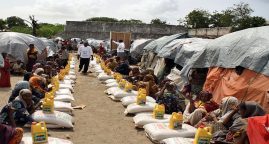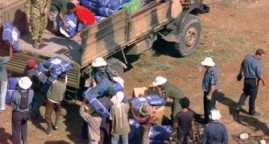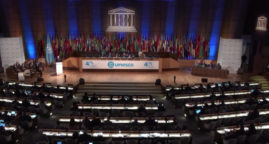Modify the humanitarian funding streams
UN aid panel calls for ‘grand bargain’ on finance
Aid organisations need to be more transparent, improve efficiency, and stop competing with each other for resources, according to a new report laying out a high-level panel’s key finance recommendations ahead of the World Humanitarian Summit in Istanbul.
The long-awaited report – “Too important to fail” – is the culmination of seven months work by a nine-member independent panel tasked by the UN secretary-general with coming up with solutions to plug the ever-widening gap between humanitarian needs and available funding.
“This report is not the end of the journey. We need to turn these recommendations into reality. We have been discussing reforming humanitarian aid for years. Now is the moment to carry this forward.” Kristalina Georgieva, panel’s co-chair and vice-president of the European Commission.
In addition to calling for more “collaborative efficiency” under what it calls a “grand bargain” between donors and aid actors, the 31-page document also appeals for: more engagement with the private sector; better channelling of Islamic social financing; and the possible introduction of solidarity levies to fund humanitarian responses.
Other recommendations include: a rethink of World Bank financing eligibility criteria (specifically to help Middle Income Countries such as Lebanon and Jordan who are currently hosting large numbers of Syrian refugees); a bridging of the humanitarian and development divide; and a greater focus on crisis prevention and disaster risk reduction.
-> Read the full article on IRIN website
Related Articles
Doing good and doing well
05/04/2017. A growing share of aid is spent by private firms, not charities.
Humanitarian Access in situations of armed conflict
02/24/2012. This Handbook on the normative framework on humanitarian access and an accompanying Field Manual are the two resources developed under the project.
Order of Malta’s Grand Master praises UNESCO’s commitment to progress and respect of human dignity
11/13/2019. In an epoch marked by serious conflicts and crisis situations that seem insuperable: “UNESCO’s action is even more deserving of our gratitude,” said the Grand Master





